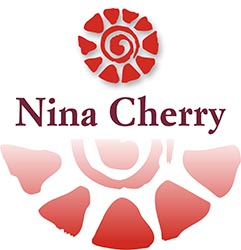What Is Your Leadership Style?
When you reflect on your business and career history, is it an expression of your life purpose, or do you find yourself off course?
One of my favorite discussions of leadership styles comes from the 2005 Harvard Business Review article, Seven Transformations of Leadership, by David Rooke and William R. Torbert. The authors researched thousands of leaders and defined types in ascending order of efficacy and transformative potential, noting that, “different leaders exhibit different kinds of action logic – ways in which they interpret their surroundings and react when their power or safety is challenged.”
There are seven types of leaders:
- Opportunist: Wins any way possible. Self-oriented; manipulative; “might makes right.”
- Diplomat: Avoids overt conflict. Wants to belong; obeys group norms, rarely rocks the boat.
- Expert: Rules by logic and expertise. Seeks rational efficiency.
- Achiever: Meets strategic goals. Effectively achieves goals through teams; juggles managerial duties and market demands.
- Individualist: Interweaves competing personal and company action logics. Creates unique structures to resolve gaps between strategy and performance.
- Strategist: Generates organizational and personal transformations. Exercises the power of mutual inquiry, vigilance, and vulnerability for both the short and long term.
- Alchemist: Generates social transformations. Integrates material, spiritual, and societal transformations.
Do you recognize yourself in any of these descriptions? I highly recommend reading the entire article and considering which style(s) you’ve used throughout your career. Awareness of your own leadership style or “action logic” helps you develop into a more effective leader.
The Alchemist, the most transformative type of leader, “has an extraordinary capacity to deal simultaneously with many situations at multiple levels.” The Alchemist can talk with both kings and commoners. He can deal with immediate priorities yet never lose sight of long-term goals.” Although Alchemists constituted just 1% of the study sample, each shared certain characteristics:
- Engaged in multiple organizations and diverse issues on a daily basis
- Good time management skills: not rushing around nor devoting hours on end to a single cause
- Typically charismatic and extremely aware
- High moral standards: focus on the truth
- Able to catch unique moments in the history of their organizations: creating symbols and metaphors that speak to hearts and minds
What inspires you to keep developing your skills and insight? Consider the type of leader you are and the type of leader you would like to be. I call this The Gap, and I coach clients to successfully navigate the gap. What would you need to do to close the gap and reach your goal of becoming a more enlightened leader?
- Source:
- Seven Transformation of Leadership. Rooke, D. and Torbert, W.R. The Harvard Business Review. April 2005. http://hbr.org/2005/04/seven-transformations-of-leadership/ar/1


